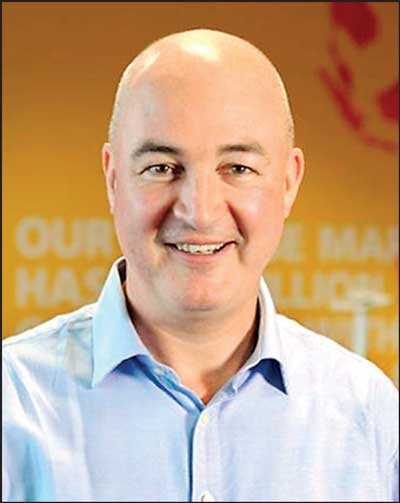Thursday Feb 19, 2026
Thursday Feb 19, 2026
Friday, 1 February 2019 00:00 - - {{hitsCtrl.values.hits}}
London (Reuters): Unilever reported lower-than-expected fourth-quarter sales on Thursday, hurt by inflation in Argentina and flat volume growth in developed markets, in its first set of results since new Chief Executive Alan Jope took charge.
 |
Unilever Chief Executive Alan Jope |
The maker of Dove soap and Ben & Jerry’s ice cream said fourth-quarter underlying sales rose 2.9%. Analysts, on average, were expecting 3.5%, a consensus forecast supplied by the company showed.
New Chief Executive Alan Jope took charge of Unilever at the start of the year. He succeeded Paul Polman, who retired after a decade as CEO during which he drove Unilever toward a vision of a company that valued sustainability as well as profits.
Speaking to analysts, Jope said that accelerating quality growth would be his top priority.
The Anglo-Dutch group, which is working to move on from last year’s botched plan to shift its main headquarters to the Netherlands, saw its shares fall nearly 3% on Thursday as the sales miss overshadowed full-year earnings that were ahead of expectations. “With growth weak but H2 margins strong, we expect this to fuel the ongoing debate on Unilever’s top line versus bottom line algorithm,” Jefferies analysts said.
Unilever reported full-year sales growth of 3.1%, in line with its forecast for growth at the bottom end of its 3 to 5% forecast range.
Looking ahead, it said it expects 2019 market conditions to remain challenging and forecast underlying sales growth again in the lower half of a 3 to 5% range, with continued improvement in underlying operating margin and another year of strong free cash flow.
For the forecast to come up to the top half of the guidance, Jope said he would want to see a sustained turnaround in Latin America and continued improvement in Southeast Asia. Noting problems in Argentina and Brazil, he called Latin America the most troubled part of the world.
Jope, a 34-year veteran of the company, has already embraced the 2020 targets Polman set for Unilever in the wake of 2017’s rebuffed $143 billion takeover bid by Kraft Heinz. The target calls for an operating margin of 20%.
He said Unilever remained on track for its 2020 goals.
“There’s nothing new about the intention, but so far at least the reality has failed to live up to it,” said analysts at RBC Capital Markets.
In the fourth quarter, Unilever blamed Argentina, which makes up 2.5% of its overall business, for hyperinflation that led prices to spike more than 50% and therefore volume to fall more than 20% in the quarter.
But more broadly, sales volume in the Americas was flat, as pricing growth was offset by volume declines. The same happened in Europe, though the company eked out 0.8% sales growth in the region. Overall, underlying sales in developed markets grew only 0.4% in the quarter.
The company blamed declines in France and competitive pressures in North America, particular in ice cream and mayonnaise.
For the full year, Unilever reported turnover of 49.6 billion euros ($57.05 billion), excluding its divested spreads business, with underlying sales up 3.1%, in line with expectations.
Its full-year earnings were 3.48 euros per share.